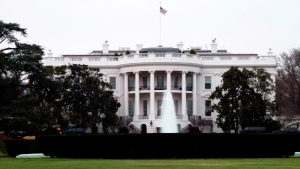Assoc. for Molecular Pathology v. Myriad Genetics, Inc., United States Supreme Court (6/13/13)
Drugs & Biotech, Patents
 Myriad obtained patents after discovering the precise location and sequence of the BRCA1 and BRCA2 genes, mutations of which can dramatically increase the risk of breast and ovarian cancer. The discovery enabled Myriad to develop medical tests for detecting mutations for assessing cancer risk. Myriad’s patents would give it the exclusive rights to isolate an individual’s BRCA1 and BRCA2 genes and to synthetically create BRCA composite DNA. The district court entered summary judgment, finding the patents invalid under 35 U.S.C. 101 because they covered products of nature. On remand following the Supreme Court’s decision, Mayo Collaborative Servs. v. Prometheus Labs, Inc., the Federal Circuit found both isolated DNA and composite DNA patent-eligible. The Supreme Court affirmed in part and reversed in part, noting that the case did not involve “method claims” for new applications of knowledge about the genes or the patentability of DNA in which the order of the naturally occurring nucleotides has been altered. A naturally-occurring DNA segment is not patent-eligible merely because it has been isolated, but composite DNA is patent-eligible because it is not naturally-occurring. Myriad did not create or alter the genetic information encoded in the genes or the genetic structure of the DNA. Even brilliant discovery does not alone satisfy the section 101 inquiry. Myriad’s claims are not saved by the fact that isolating DNA from the human genome severs chemical bonds that bind gene molecules together. The claims are not expressed in terms of chemical composition, nor do they rely on the chemical changes resulting from the isolation of a particular DNA section. Composite DNA, however, is not a “product of nature;” a lab technician unquestionably creates something new when introns are removed from a DNA sequence to make composite DNA.
Myriad obtained patents after discovering the precise location and sequence of the BRCA1 and BRCA2 genes, mutations of which can dramatically increase the risk of breast and ovarian cancer. The discovery enabled Myriad to develop medical tests for detecting mutations for assessing cancer risk. Myriad’s patents would give it the exclusive rights to isolate an individual’s BRCA1 and BRCA2 genes and to synthetically create BRCA composite DNA. The district court entered summary judgment, finding the patents invalid under 35 U.S.C. 101 because they covered products of nature. On remand following the Supreme Court’s decision, Mayo Collaborative Servs. v. Prometheus Labs, Inc., the Federal Circuit found both isolated DNA and composite DNA patent-eligible. The Supreme Court affirmed in part and reversed in part, noting that the case did not involve “method claims” for new applications of knowledge about the genes or the patentability of DNA in which the order of the naturally occurring nucleotides has been altered. A naturally-occurring DNA segment is not patent-eligible merely because it has been isolated, but composite DNA is patent-eligible because it is not naturally-occurring. Myriad did not create or alter the genetic information encoded in the genes or the genetic structure of the DNA. Even brilliant discovery does not alone satisfy the section 101 inquiry. Myriad’s claims are not saved by the fact that isolating DNA from the human genome severs chemical bonds that bind gene molecules together. The claims are not expressed in terms of chemical composition, nor do they rely on the chemical changes resulting from the isolation of a particular DNA section. Composite DNA, however, is not a “product of nature;” a lab technician unquestionably creates something new when introns are removed from a DNA sequence to make composite DNA.
Read More: Natural DNA Cannot Be Patented, Supreme Court Rules
Gary Friedrich Enters., LLC v. Marvel Characters, Inc., US 2nd Cir. (6/11/13)
Contracts, Copyright, Intellectual Property, Trademark
Plaintiff sued Marvel, contending that he conceived the comic book character “Ghost Rider,” the related characters, and the origin story. Plaintiff also claimed that he owned the renewal term copyrights in those works. On appeal, plaintiff challenged the district court’s grant of summary judgment in favor of Marvel, holding that plaintiff had assigned any rights he had in the renewal term copyrights to Marvel when he executed a form work-for-hire agreement (the Agreement), six years after the initial publication of the issue in question. The court, by applying the “strong presumption against the conveyance of renewal rights,” concluded that the district court erred in holding as a matter of law that plaintiff had assigned his renewal rights to Marvel by signing the Agreement; plaintiff’s claim was not untimely as a matter of law because there were genuine disputes regarding whether plaintiff should have known about Marvel’s repudiation of his claim of ownership; and there were genuine disputes of material fact that precluded granting summary judgment on the issue of authorship. Accordingly, the court vacated and remanded for trial.
Read More: Marvel Must Defend ‘Ghost Rider’ Copyright, Court Says

 A lawsuit filed in the U.S. District Court for the District of Wyoming alleged that the plane of Amelia Earhart had been located. Plaintiff Timothy Mellon stated in his
A lawsuit filed in the U.S. District Court for the District of Wyoming alleged that the plane of Amelia Earhart had been located. Plaintiff Timothy Mellon stated in his  Maryland v King
Maryland v King Back in January, key provisions of FISA – the Foreign Intelligence Surveillance Act – were renewed by Congress. I wrote about the troubling situation of
Back in January, key provisions of FISA – the Foreign Intelligence Surveillance Act – were renewed by Congress. I wrote about the troubling situation of  California is proposing to charge citizens to access and read court files and other public documents. The Administrative Office of the Courts has proposed that the state charge $10 for every name, file, or information that comes back from a search.
California is proposing to charge citizens to access and read court files and other public documents. The Administrative Office of the Courts has proposed that the state charge $10 for every name, file, or information that comes back from a search.  President Obama
President Obama